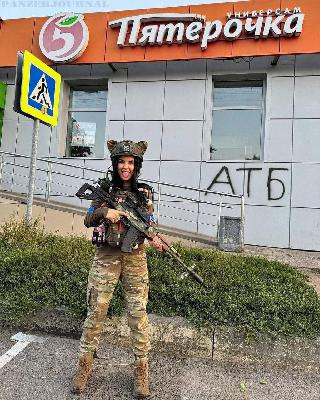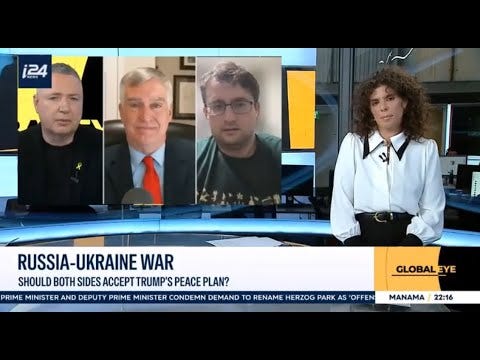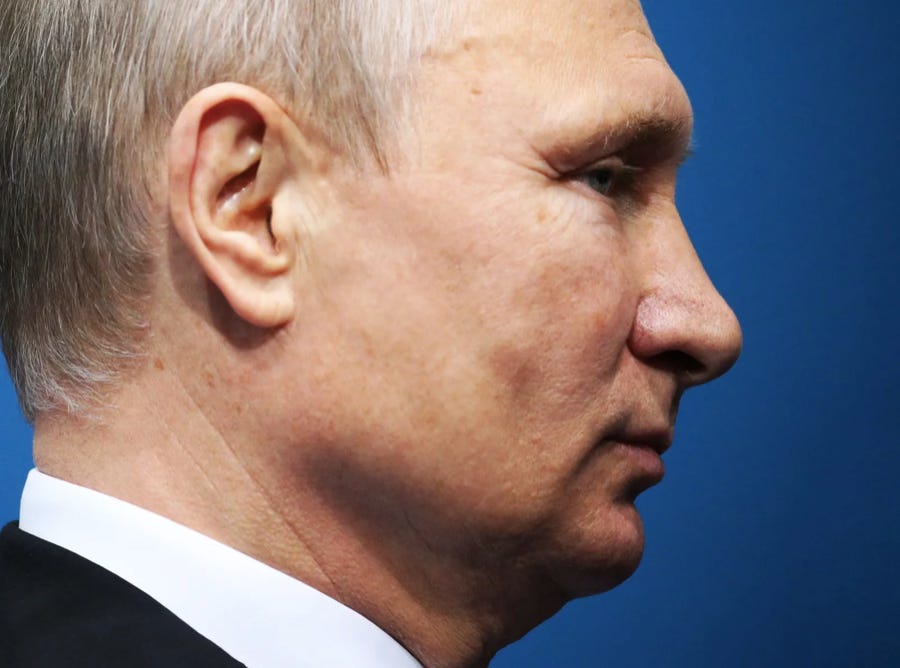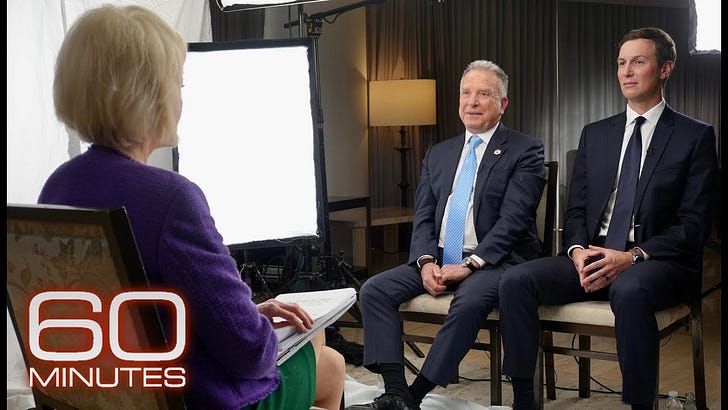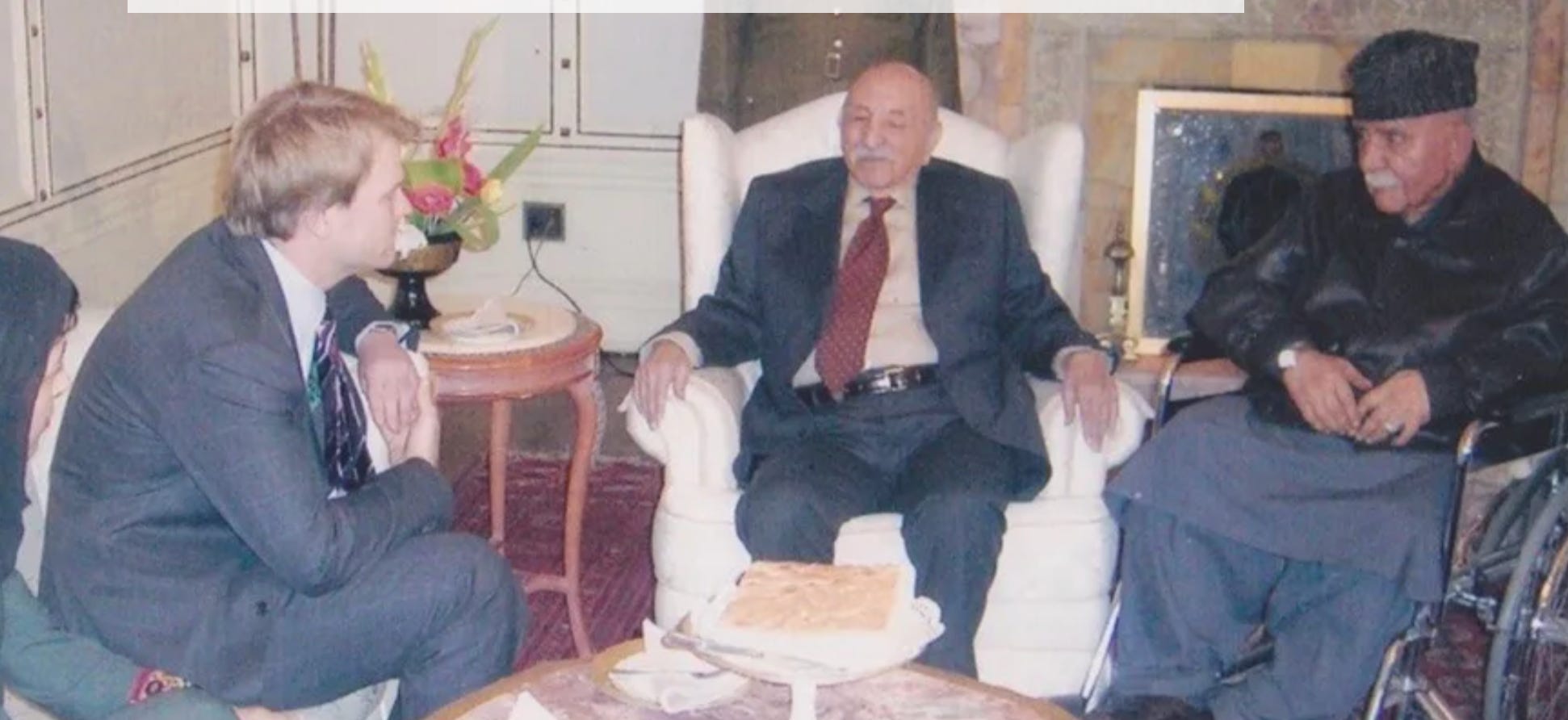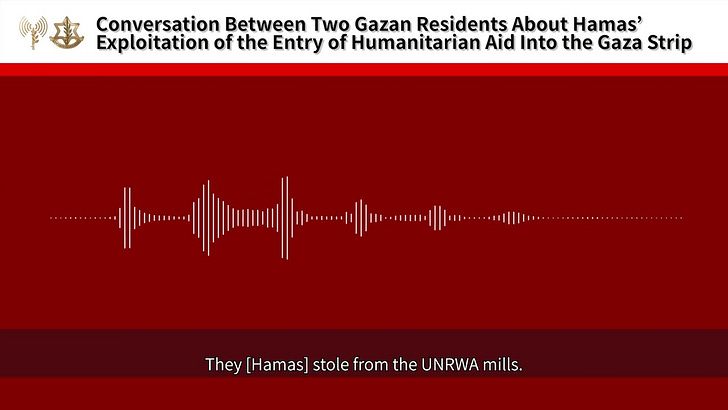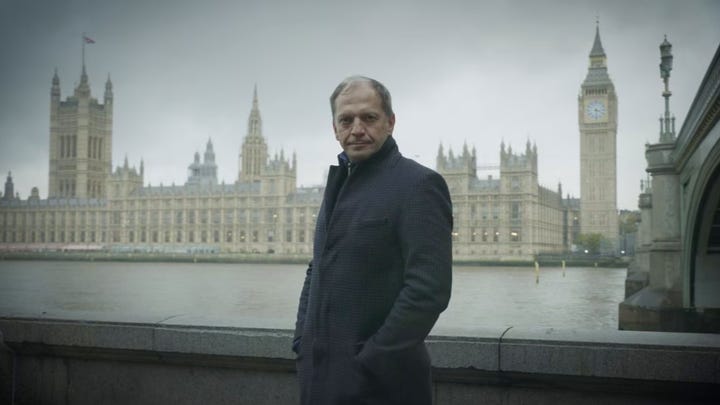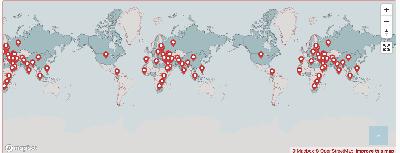Why Ukraine staged the Kursk offensive now
Description
Vladislav Davidzon joins us to discuss his latest article in Tablet.
Ukraine defies the US to launch a showy offensive into Russia: Observing Israel’s moves in the Middle East, Kyiv gambles on an American power vacuum:
… What changed in July is that the Ukrainians, like other embattled US allies, were faced with a new opportunity in Washington: The cognitively impaired president had been forced out of his reelection bid in favor of his vice president, who was now out on the campaign trail, three months before the election. With this emergent power vacuum at the White House, the Ukrainians decided to bypass both the deposed occupant of the White House as well as the staff of his hypercautious National Security Council, instead of slowly bleeding to death under rules guaranteed to produce slow-motion defeat. …
Kyiv observed carefully how Israel conducted its strikes immediately after Prime Minister Netanyahu returned from a triumphant speech before the US Congress. In fact, earlier this week the chair of the Ukrainian Parliamentary Committee on National Security and Defense, Roman Kostenko, explicitly referenced the Israeli example in a televised interview. “So Israel announced that they would take the advice of their partners very seriously but would afterward make their own decisions in the best interest of their own national security. I think that we can simply mirror that approach in our own case.”
If you’re in a hurry, here’s a transcript:
Claire: Hi, it’s Claire Berlinski, and you’re back in the Elephant Cage with my guest, Vladislav Davidson. Vladislav, let’s talk about your big scoop.
Vladislav: Hi, Claire. Thank you for having me on. I have a big piece out in Tablet Magazine, and a lot of other people seemed to have missed the obvious. On August 6th, the Ukrainians began their long-awaited mechanized invasion of Russia’s Kursk Oblast. The Ukrainians had been preparing for their annual counter offensive for a long time and picking their target of convenience. And they chose to go all in into Kursk because they saw that it was very weakly protected, and it turned out to be a very good decision. A lot of the Russian border guards and conscripts just gave up as soon as they saw Ukrainian mechanized forces and combat-ready, battle-hardened divisions. A lot of those guys just ran, to a point where the Ukrainians seemed to be taking between 100 and 200 Russian POWs a day, and times10, 12 days. They already seemed to have taken two divisions worth of Russian POW conscripts, thus refurbishing their exchange fund to the point where the Russians have, according to Ukrainian sources, initiated a POW exchange for the first time in two years.
Claire: Yeah, I saw that. It’s actually quite amazing. I’ve been seeing a lot of photos and a lot of videos of Russians surrendering en masse. I have not been sure whether those photos are real, but it sounds like they are.
Vladislav: I think they are real. I’ve seen a lot of those videos. Those are hard to stage. And a lot of those guys are 19, 18-year-old conscripts who are technically not supposed to be fighting outside of Russia, but they’re fully usable to defend the Russian border so the Russians throw them at the Ukrainians to stop them while they bring in better forces, Interior Ministry troops, fast response guys, national guard, hardened, battle-tested troops from inside Ukraine. While they’re trading land for time, as one does in that situation, they’re throwing conscripts with four or five, six months of training under their belts directly at these really excellent Ukrainian airborne troops. It’s Soviet, Ukrainian, and Russian doctrinal policy to use airborne troops for raids. This is a textbook raid, which was transformed into a territory holding situation. The incursion is being done with the best troops, airborne troops.
Claire: Tell us how the Ukrainians decided to do this. Obviously, they’d been planning this for at least three to six months. But they decided to go all in after they saw the Israelis do what they wanted to do, after Netanyahu returned from Washington, DC. On July 30th and 31st, the Israelis carried out assassinations against two high-value targets, one in Beirut, one in Tehran. These assassinations were carried out immediately upon Prime Minister Netanyahu returning from his trip to Washington, DC, where he addressed Israel, Congress, and where he had private meetings with whoever was in the White House. And he saw Harris in the White House and he saw the national security people of the Biden administration. And he nodded politely to the finger wagging that he received. And immediately upon returning to Jerusalem, he launched assassinations against high-value Hamas and Hezbollah operatives. And it was obvious that he was told to do one thing by the White House, and he did quite another thing.
Claire: I don’t think that’s obvious, actually. There’s been a lot of speculation that he cleared that with the White House before doing it.
Vladislav: I’m not sure he did. Why would he do this right as the Democratic Party is having its convention today?
Claire: They’d do it because Haniyeh was only going to be in Iran for those days.
Vladislav: And he’s not there all the time. He was there for the swearing in of a new Persian president. And he was a target of opportunity. They obviously used a lot of effort and regional resources, operatives to get that bomb smuggled into that house. And it’s not every day that you get a chance to take him out. And they had the opportunity and they took it.
Claire: But what about that makes you think that he didn’t clear the White House beforehand? I don’t know whether he did or not. I’ve just seen speculation that he did. And as for Fuad Shukr, of course, we would have said, yeah, take him out. He’s responsible for the death of 242 Marines.
Vladislav: Yeah, but he’d been operating for decades in Beirut.
Claire: I’ve been wondering about that myself, but I just cannot imagine the Americans saying to Netanyahu, “Don’t do that.”
Vladislav: Really? Just the opposite. I can’t imagine them saying, “Do it” in this situation. This is a very delicate time, and it’s a very complex situation in terms of the Americans’ internal interests, which is, obviously, this administration is carrying on the Obama-era foreign policy of normalizing relations with Tehran. They hate the Israelis. And they hate the Israelis complicating their regional foreign policy pivot, which is obviously not something the Sunni Arabs or the Israelis want.
Claire: I’ve seen no evidence that the administration hates the Israelis. Biden likes the Israelis, he just doesn’t like Netanyahu.
Vladislav: They see them as a problem, the thorn in their side for their big foreign policy shift.
Claire: No more than every other administration always has.
Vladislav: This is a really big difference. This is a continuation of Obama-era foreign policy with a lot of the same people in charge of Middle East foreign policy, people like Blinken, people like Sullivan.
Claire: I don’t believe that the Biden administration is more vexed by Israel than almost every previous administration has been. Because our interest in Israeli security has always been at odds with our other interests in the region.
Vladislav: There’s always been a contradiction. It’s true. But with the Obama foreign policy, there is a direct contradiction between the historical American foreign policy and what the Israelis see as their existential interests in the region of keeping Tehran boxed in. And the Obama foreign policy is to normalize Iran and bring them into the Middle East security architecture as the Americans are trying to leave the Middle East. So, this is a completely radically new situation.
Claire: The radical situation is Iran’s approaching a deployable nuclear weapon. That creates all kinds of problems without easy solutions.
Vladislav: Correct. That’s true.
Claire: So tell me about how the Ukrainians reacted to this.
Vladislav: The Ukrainians spent a few days observing the American response to the move. That is obviously not a happy situation for the White House and the National Security Council led by Mr. Jake Sullivan. The State Department under Blinken does not love it. And they made the decision that they too could run their own foreign policy, independent of their American allies’ scolding and red lines of constraint. They saw the Israelis getting away with it. Act first and apologize later, which is one of the quotes from a high level source in the Zelensky team in my piece.
Claire: The people who spoke to you, they must want the administration to know what they’re thinking?
Vladislav: After I reported the piece, a gentleman who is head of the Defense Intelligence and Security Committee inside the Rada went on TV and said, look, the Israelis listened very carefully, very politely, very generously, to the advice of their allies. And they said, we will act first in our own interests, and then we will answer our allies’ concerns afterwards. He said this openly. The head of a national security committee in the Ukrainian parliament, who’s one of the very few MPs inside Ukraine who knows what’s going on in terms of defense, because even Ukrainian MPs don’t know very much about oper

